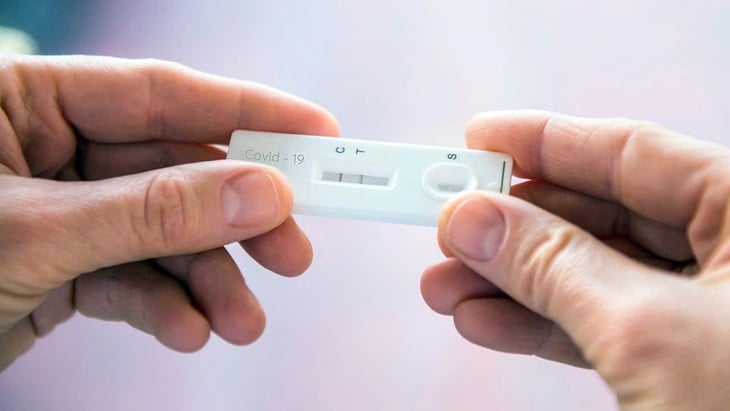COVID-19 test - Photo: THAIRATH
According to the Huffington Post , this new COVID-19 variant was first detected in China in January 2024 and now accounts for about 10% of SARS-CoV-2 samples sequenced worldwide , a sharp increase from 2.5% four weeks ago.
According to the U.S. Centers for Disease Control and Prevention (CDC), only 20 NB.1.8.1 gene sequences have been identified in the U.S. so far, not enough to be included in the agency's official monitoring system. However, if the rate continues to increase, the variant will be updated on the CDC's watchlist.
NB.1.8.1 is believed to be more contagious due to carrying several new mutations on its spike protein, which helps the virus attach to human cells more easily. The World Health Organization suggests that these mutations may reduce the effectiveness of neutralizing antibodies, making it easier for the virus to evade the immune system.
However, according to infectious disease experts, NB.1.8.1 does not cause symptoms that are significantly different from previous variants. Infected individuals typically experience symptoms such as a mild but persistent dry cough, nasal congestion, fatigue, fever, chills, sore throat, and muscle aches. Some people have noted that the symptoms of this variant are milder than winter flu, but it can still be severe in high-risk individuals.
There is currently no evidence to suggest that NB.1.8.1 causes more severe illness or increases hospitalizations or deaths. However, this variant is becoming increasingly common.
Regarding the vaccine's effectiveness, scientists believe that NB.1.8.1, derived from the Omicron JN.1 strain, remains within the target group for COVID-19 vaccines in the 2024-2025 season. While its ability to prevent infection may be short-term, the vaccine retains its effectiveness in preventing severe illness. Older adults with underlying health conditions or those working in high-risk environments should receive a booster shot if more than six months have passed since their last vaccination or last infection.
Most patients can recover at home by resting, staying hydrated, and taking fever-reducing and pain-relieving medication. However, those at high risk should contact a doctor to get a prescription for antiviral medication such as Paxlovid or Molnupiravir, which are most effective when taken within the first five days of symptom onset. If dangerous signs appear, such as chest pain, shortness of breath, confusion, or inability to remain conscious, the patient should seek medical attention immediately.
Back to the topic
D.KIM THOA
Source: https://tuoitre.vn/bien-the-covid-19-moi-nb-1-8-1-de-lay-hon-20250609000005677.htm






































































































Comment (0)